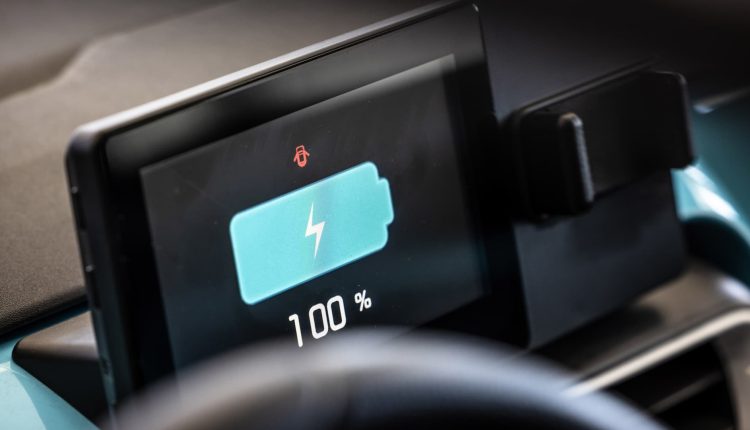This EV battery stock has potential double-digit gains ahead. UBS thinks it could even surge 100%
Contemporary Amperex Technology , better known as CATL, is an understated giant in the electric vehicle world. It’s the biggest stock by market capitalization in the index of largest stocks traded on the Shenzhen exchange — bigger than even BYD’s local listing. CATL is a major supplier of electric car batteries for all the big industry players from BMW to Tesla. BYD makes its own batteries. Chinese stocks have been depressed all year, and CATL is no exception with a decline of nearly 13% for the year so far. But stock analysts think CATL shares still have a long way to run from its close of 189.03 yuan ($26.25) on Friday. That’s despite an ongoing European Union probe into the role of subsidies in Chinese electric vehicle production. “We maintain our Buy rating for CATL on its first-mover advantage in localized production in EU,” Nomura analysts said in a Nov. 6 report. They had a neutral rating on their two other battery stock picks. Nomura has a price target of 315 yuan — for an upside of nearly 67% from Friday’s close. For many analysts, the fact that CATL is already manufacturing in Europe offsets geopolitical risks. “We believe that the technology leadership and strong production commitment (especially in the EU) could help better navigate trade/tariff/FX uncertainty (e.g. recent EU antisubsidy investigation) and further grow its overseas market share,” HSBC analysts said in an Oct. 24 report about CATL. Even after trimming their price target on the buy-rated stock, the analysts have a price target of 266 yuan — just over 40% upside from Friday’s close. “As per the company earnings call, its first European plant in Thuringia (planned annual capacity at 14GWh) has been ramping up smoothly since starting production in January 2023, and its Hungary plant with Phase I planned annual capacity of 34GWh (total 100GWh) is also under construction,” the HSBC report said. CATL disappointed analysts slightly with its third quarter earnings out on Oct. 19. Revenue for the quarter was 105.43 billion yuan, below the 112.31 billion yuan predicted by FactSet, while net income also missed at 10.43 billion yuan versus 12.16 billion yuan expected. “CATL continues to win share overseas with key European OEMs including VW, BMW, Mercedes-Benz etc, as they have won contracts for major EV launches in 2026, and we expect CATL’s overseas market share will continue to rise,” Jefferies analysts said in an Oct. 19 report. “Despite market oversupply and competition, CATL demonstrates ability to maintain decent profitability through better technology and cost advantage,” the analysts said. They have a price target of 284 yuan, or 50% upside from Friday’s close. More products coming to market The company already has just over a third of the global EV battery market, with more products on the way, according to Counterpoint Research. “CATL has already achieved a breakthrough in sodium-ion battery chemistry, and we expect to see the mass adoption of such batteries very soon,” Counterpoint Research’s Peter Richardson said in a note Wednesday. “A model of Chery’s iCar brand is expected to be equipped with CATL’s sodium-ion battery and go on sale in early 2024,” he said. The batteries are the most expensive component of electric cars. Cutting the cost of the battery, improving its charging speed and extending its driving range all help make electric cars more attractive to consumers. Li Auto, which reported record deliveries in October that beat out Tesla , is launching its first purely battery-powered vehicle in December — with a new CATL battery called Qilin. Citing in part that fast-charging Qilin battery and similar new products for Chinese electric car brands Avatr and Chery, UBS analysts on Oct. 19 printed a price target of 400 yuan a share. That’s 111%, or more than double, where CATL closed Friday. UBS analysts also noted CATL forecast an improvement in deliveries in the fourth quarter from the third, while pointing out its lithium mine in Jiangxi has already been put into production. — CNBC’s Michael Bloom contributed to this report.
Read the full article here

